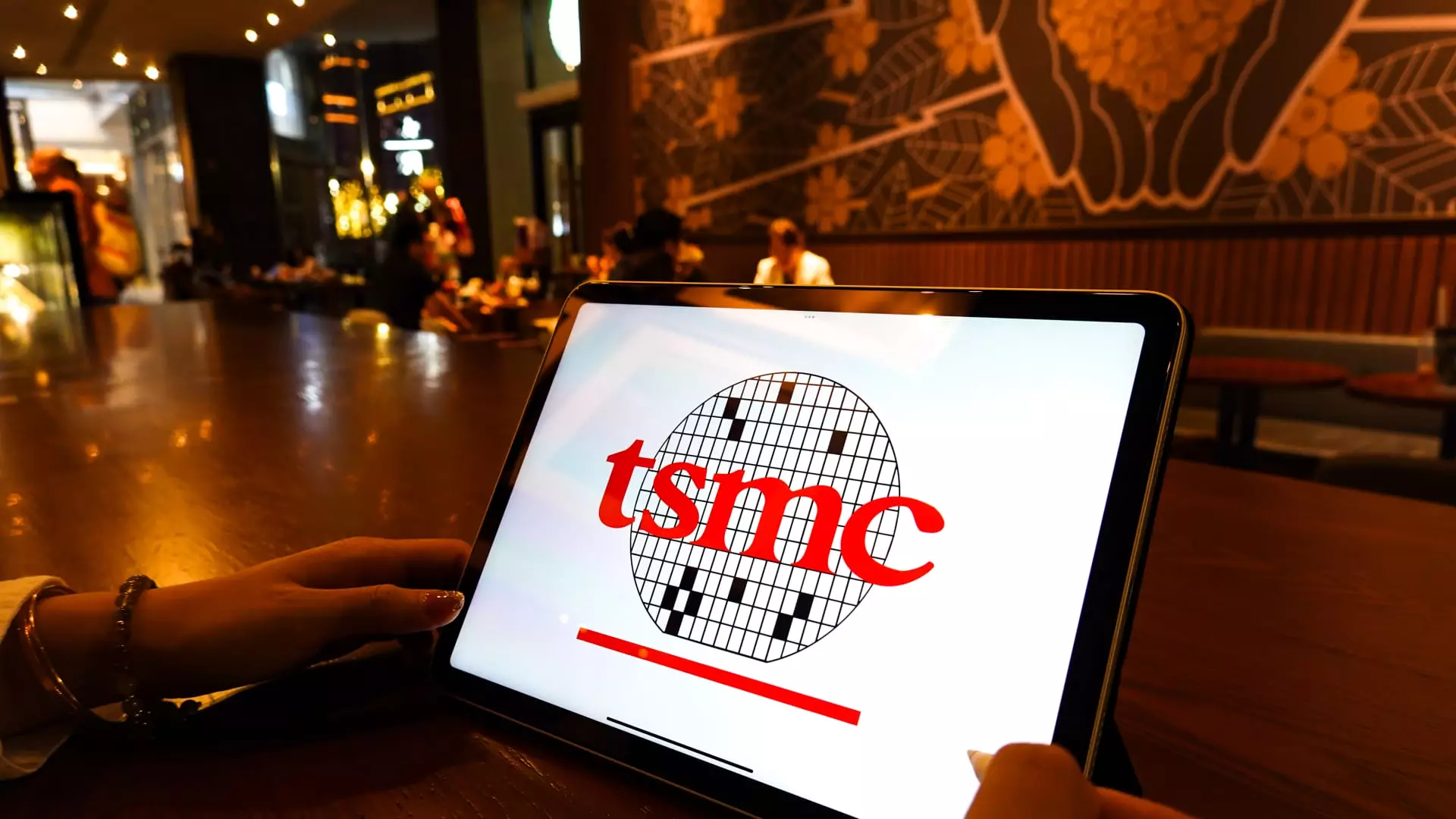Taiwan Semiconductor Manufacturing Company (TSMC) has once again demonstrated its dominance in the semiconductor industry, reporting a considerable 54% increase in net profit during the third quarter of the fiscal year. This surge in earnings is primarily driven by the insatiable demand for chips in artificial intelligence (AI) applications, but it also raises critical questions about sustainability and the long-term ramifications of such growth.
For the July to September quarter, TSMC recorded a net income of 325.3 billion Taiwanese dollars ($10.1 billion), exceeding expectations set by LSEG, which projected earnings of 300.2 billion Taiwanese dollars. Notably, the company achieved a net revenue of $23.5 billion in Q3, marking a substantial year-over-year increase of 36%. Particularly telling is TSMC’s gross margin, which rose to 57.8%, a commendable 3.5% increase from the previous year and indicative of improved operational efficiencies and pricing power.
The company’s outlook for the fourth quarter is also optimistic, as TSMC’s Chief Financial Officer Wendell Huang projected revenues between $26.1 billion and $26.9 billion. This forecast represents a sequential increase of 13% and an impressive year-over-year growth of approximately 35%. Such robust figures underline TSMC’s pivotal role in the semiconductor ecosystem, particularly in supplying cutting-edge 3nm and 5nm technologies to key players like Apple and Nvidia.
A significant factor behind TSMC’s burgeoning profits is the unmistakable demand for AI capabilities. During the earnings call, CEO C.C. Wei emphasized that the demand for AI chips is “real” and noted TSMC’s unique position in the market as a benefactor of a surge in AI-related innovations. The company has been actively collaborating with hyperscaler companies and AI innovators, establishing itself as a critical partner in the development cycle of new technologies.
TSMC’s position as the world’s largest producer of advanced chips is being further cemented as it continues to innovate and adapt to market trends. The growing reliance on AI across various sectors—from smartphones to advanced computing applications—will likely sustain the demand for TSMC’s offerings in the coming years. Nevertheless, it is essential to consider whether this AI boom can be maintained at such heights.
TSMC’s commitment to its growth isn’t merely reliant on chip sales; the company is also significantly investing in expanding its manufacturing footprint. With a planned capital expenditure exceeding $30 billion this year, TSMC is heavily focusing on R&D and infrastructure improvements to meet burgeoning U.S. demand. Their recent announcements of three new chip plants in Arizona, along with the establishment of a factory in Japan, signify a strategic pivot that underscores TSMC’s intent to solidify global supply chains and lessen dependency on any single market.
Such international investments are vital, especially considering the geopolitical climate that may impact supply chains. Building a manufacturing presence in diverse geographical locations is not just a precaution; it is a proactive strategy to navigate potential disruptions that can arise from trade tensions and other factors.
Amidst the enthusiasm surrounding TSMC’s latest results, there are emerging concerns regarding the longevity of the AI boom and the overall tech sector. Recently, ASML, a key supplier to TSMC, issued a lower-than-expected forecast for net sales, casting doubt on the sustainability of current market dynamics. Similarly, industry voices have begun to question the return on investment in increasingly ambitious AI technologies, suggesting that companies may need time to fully realize the benefits of these innovations.
Furthermore, Young Liu, CEO of Foxconn, has remarked that the AI frenzy may still have a prolonged evolution period. This perspective reflects a cautious view that the current excitement around AI might be subject to volatility as technologies mature and market saturation approaches.
TSMC’s strong financial performance and its pivotal role in the advancing AI landscape highlight both opportunities and challenges. As the company navigates its ambitious growth trajectory, stakeholders must maintain a balanced perspective, weighing the immediate gains against potential long-term shifts in the technological environment. Emphasizing innovation while being cognizant of market realities will be essential as TSMC looks to solidify its place as the cornerstone of the semiconductor industry in the coming years.

